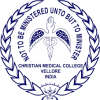How to become an Ophthalmologist
Overview, Courses, Exam, Colleges, Pathways, Salary

Overview
Who is Ophthalmologist ?
An ophthalmologist is a highly trained medical doctor specializing in diagnosing, treating, and managing eye conditions and visual disorders. Equipped with extensive medical knowledge, ophthalmologists perform comprehensive eye examinations, prescribe corrective lenses, administer medical treatments, and conduct intricate surgical procedures to address various ocular issues. They are experts in multiple subspecialties, including cornea, retina, glaucoma, and oculoplastics. Ophthalmologists play a crucial role in preserving and restoring vision, whether through prescribing glasses, managing chronic eye diseases, or performing complex surgeries like cataract removal and laser vision correction. With a deep understanding of eye health and advancements in medical technology, ophthalmologists are dedicated to providing comprehensive care and ensuring optimal visual well-being for their patients.
Typical day at work
What does Ophthalmologist do?
- Carry out ophthalmic surgery like cataract, glaucoma, vitro-retinal, eye muscle or oculoplastic surgery.
- Examine the visual system in detail to assess the type or severity of ocular disorders.
- Diagnosis or treatment of eye and eye structure damages, disorders or diseases involving cornea, sclera, conjunctiva or eyelids.
- Document or assess the medical history of patients.
- Deliver pre- and postoperative care to patients going through eye surgery.
- Carry out, direct, or interpret diagnostic or clinical test outcomes.
- Prepare treatment strategies based on the history and aims of patients, the existence and seriousness of the conditions, and the costs and benefits of treatment.
- Give or prescribe topical or systemic medicines to treat ophthalmic illnesses and to manage pain.
- Carry out laser surgery to modify, extract, reshape or repair the ocular tissue.
- Advise other medical practitioners on ophthalmic consultation.
- Manage ophthalmic disorders taking both the physiological and psychological elements of patient treatment into account.
- Use equipment like ophthalmoscopes, slit lamps and lenses.
- Assist patients in understanding their medical illness.
- Take care of legal paperwork for patient certification as blind or partially sighted.
- Foster eye health and general wellbeing.
Abilities and Aptitude needed
What are the skills, abilities & aptitude needed to become Ophthalmologist?
For these professionals to be an efficient ophthalmologist, they need to have decision-making abilities, as they are accountable for evaluating, correctly diagnosing and treating several visual damages. In addition, they should demonstrate excellent interpersonal abilities, letting them communicate easily with their patients, and stellar speaking abilities, so that patients can be fully informed regarding aspects of an appointment, examination or procedure. Ophthalmologists must be respond to any and all patient queries and convey guidelines on eye care and possible limitations.
This role includes testing and determining a client's vision utilizing a variety of equipments (ophthalmoscopes) and traditional tools (such as lasers). Then an ophthalmologist would reach a diagnosis, and offer counsel. You must therefore, be able to recognize issues and then utilize your critical thinking abilities to resolve them.
Ophthalmologists must assess the outcomes of several assessments and determine a patient's best treatment option. Ophthalmologists make sure that patients are treated properly and that the drugs and prescriptions are correct. They also record and preserve patient care associated data. Thus, they must demonstrate good management and administrative proficiency.
They collaborate with a multidisciplinary team comprising optometrists, orthoptists and nurses along with specialists like neurologists, ENT surgeons, pediatrists and geneticists and therefore, they must possess competencies in collaborating with a team and leadership.
In addition, to become a competent ophthalmologist one needs to have fine motor abilities, specially for surgery, and the skill to encourage patient confidence and faith.
Salary
Salary for Ophthalmologist?
Salary of An Ophthalmologist is as follows :
- Minimum Monthly Salary: Entry-level ophthalmologists can expect a monthly salary ranging from INR 50,000 to INR 1,00,000. These initial earnings are typical for individuals who have recently completed their medical training and are beginning their careers in this specialized field.
- Maximum Monthly Salary: Highly experienced and specialized ophthalmologists with advanced skills, years of practice, and roles in complex surgical areas may earn anywhere from INR 2,00,000 to INR 5,00,000 or more per month. Ophthalmologists working in renowned medical institutions, specializing in intricate surgical procedures, research, or contributing to advancements in eye care may command higher salaries.
- Annual Salary: The annual salary for entry-level or junior ophthalmologists could range from INR 6,00,000 to INR 12,00,000. As ophthalmologists gain experience, develop expertise in specific eye conditions, and potentially establish private practices, their annual income can increase from approximately INR 12,00,000 to INR 24,00,000 or higher.
- Highest Paying Jobs and Scope: Ophthalmologists specializing in sub-specialties such as retina, cornea, glaucoma, or refractive surgery enjoy better salary prospects. Those who contribute to innovative treatment techniques, engage in research collaborations, or work on complex patient cases may have enhanced earnings. Ophthalmologists are pivotal in diagnosing and treating various eye conditions, from vision correction surgeries to managing severe diseases. With the increasing demand for specialized eye care and advancements in medical technology, skilled ophthalmologists are expected to have promising career opportunities. Professionals who excel in surgical expertise, patient care, precision, and effective communication will likely experience substantial career growth and advancement within the field of ophthalmology.
Pathways
How to become an Ophthalmologist?
Entrance Exam
Entrance Exam for Ophthalmologist ?
Courses
Which course I can pursue?
Best Colleges
Which are the best colleges to attend to become an Ophthalmologist?
Industries
Which Industries are open for Ophthalmologist?
Ophthalmologists are essential medical professionals who specialize in eye care and vision health. They can find opportunities in various industries and healthcare settings, including:
- Hospitals: Ophthalmologists are often employed in hospitals, providing comprehensive eye care services, performing surgeries, and treating various eye conditions.
- Private Practices: Many ophthalmologists establish private practices, offering eye care services, consultations, surgeries, and vision correction procedures.
- Ophthalmology Clinics: Specialized eye care clinics focus exclusively on ophthalmic services, providing a dedicated environment for diagnosis, treatment, and surgery.
- Academic and Research Institutions: Ophthalmologists may work in universities, medical schools, and research institutions, conducting research, teaching medical students, and contributing to advancements in eye care.
- Optical Retail and Eyewear Industry: Ophthalmologists can collaborate with opticians and optical stores, offering medical expertise for patients seeking eyeglasses, contact lenses, and vision assessments.
- Pharmaceutical Companies: Some pharmaceutical companies employ ophthalmologists to conduct clinical trials, research new medications, and provide medical insights related to eye health.
- Healthcare Organizations and Networks: Ophthalmologists can join large healthcare networks or managed care organizations, providing specialized eye care services to a broader patient base.
- Surgical Centers: Ophthalmologists may work in specialized eye surgery centers, focusing on cataract surgery, LASIK, and other vision correction surgeries.
- Aesthetic and Cosmetic Clinics: Ophthalmologists with expertise in oculoplastics may work in clinics offering cosmetic and reconstructive eye procedures.
- Emergency Medical Services: Ophthalmologists can contribute their skills in emergency medical settings, providing prompt diagnosis and treatment for eye injuries and acute conditions.
- Research and Development: Ophthalmologists may work for medical device companies, contributing to developing and testing new eye care technologies and surgical instruments.
- Telemedicine and Virtual Healthcare: With the rise of telemedicine, ophthalmologists can provide remote consultations and assessments for patients seeking expert advice on eye conditions.
- Nonprofit Organizations and Outreach: Ophthalmologists may volunteer or work for nonprofit organizations, providing eye care services to underserved communities and participating in medical missions.
- Academic Institutions: Ophthalmologists can serve as faculty members at medical schools and educational institutions, educating future doctors and advancing the field through research and teaching.
internship
Are there internships available for Ophthalmologist?
Internships for aspiring ophthalmologists provide valuable hands-on experience in various aspects of eye care, diagnosis, treatment, and surgeries. Here are potential internship opportunities available for ophthalmology students or early-career ophthalmologists:
- Hospital Ophthalmology Departments: Many hospitals offer internships in their ophthalmology departments, where interns can observe and assist experienced ophthalmologists in diagnosing and treating various eye conditions.
- Ophthalmology Clinics: Specialized eye care clinics provide internships focused on comprehensive eye examinations, medical and surgical treatments, and patient interactions.
- Surgical Centers: Interns can gain exposure to surgical procedures by interning at eye surgery centers and assisting in surgeries like cataract removal, LASIK, or corneal transplantation.
- Optical Retail and Eyewear Industry: Some internships provide opportunities to collaborate with optometrists and opticians in visual retail settings, gaining insights into the prescription lens and eyewear selection process.
- Research Institutions: Internships in research institutions or academic settings allow students to engage in eye-related research projects, contributing to advancements in ophthalmology.
- Medical Device Companies: Internships with manufacturers offer insights into developing and testing ophthalmic devices, equipment, and surgical instruments.
- Telemedicine and Virtual Health Platforms: With the rise of telemedicine, internships in virtual healthcare settings provide experience in remote patient consultations and teleophthalmology services.
- Outreach Programs and Nonprofit Organizations: Some internships focus on community outreach, allowing interns to participate in eye care programs for underserved populations and remote areas.
- Optometry Clinics: Interning in clinics provides exposure to vision assessments, prescription interpretations, and collaboration between ophthalmologists and optometrists.
- Academic Institutions: Internships at medical schools or educational institutions offer opportunities to assist in teaching, research, and scholarly activities related to ophthalmology.
- Aesthetic and Cosmetic Clinics: Internships in oculoplastics or cosmetic ophthalmology clinics provide experience in eyelid and facial surgeries.
- Emergency Medical Services: Some hospitals or emergency medical departments offer internships focused on rapid diagnosis and treatment of acute eye injuries.
Career outlook
What does the future look like for Ophthalmologist?
A specialized division of medicine, ophthalmology has plenty of career options to choose from. They can work in health centers, private and government hospitals, health departments and nongovernmental organizations. One may also enter the armed forces-as an ophthalmologist in the army, air force or navy. Ophthalmologist jobs are also available in a single-specialty group practice and others are available in multi-specialty group practice. They can also be employed in clinics, practice independently or they can carry out research mainly in an educational setting.
Ophthalmologists can also become medical agents for businesses or pharmaceutical companies dealing with ophthalmic instruments.




.webp)


